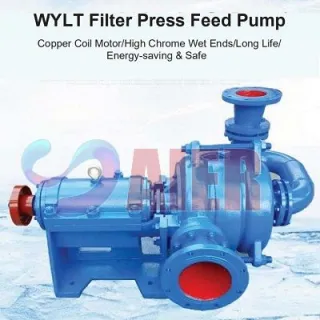Nov . 26, 2024 07:30 Back to list
Efficient Solutions for Managing Wastewater with Centrifugal Pump Technology
Centrifugal Wastewater Pump An Essential Component in Wastewater Management
Centrifugal wastewater pumps are crucial devices utilized in various applications related to wastewater treatment and management. Known for their efficiency and reliability, these pumps play a pivotal role in transporting wastewater and ensuring that it undergoes proper treatment before being released into the environment. This article delves into the functioning, advantages, applications, and considerations of centrifugal wastewater pumps.
Understanding Centrifugal Pumps
At its core, a centrifugal pump operates on the principle of converting rotational energy, typically from an electric motor or engine, into hydrodynamic energy. The heart of the pump is the impeller — a rotating component that accelerates the fluid, creating a pressure difference that drives the fluid through the pump and into the discharge line. This design makes centrifugal pumps particularly well-suited for handling large volumes of fluid, including dirty and contaminated water.
Key Advantages
1. Efficiency Centrifugal pumps are designed to move large volumes of wastewater with minimal energy consumption. Their efficiency improves with consistent flow rates, making them ideal for applications where continuous pumping is required.
2. Versatility These pumps can handle a variety of fluids, including those with suspended solids, making them ideal for municipal wastewater treatment, industrial applications, and even agricultural runoff management.
3. Simplicity and Low Maintenance Centrifugal pumps have relatively simple designs, which translates to lower maintenance and operational costs compared to other types of pumps. Their straightforward operation means fewer components are likely to fail, enhancing their reliability over time.
4. Scalability Centrifugal pumps can be easily scaled up or down based on the specific needs of a wastewater treatment facility. Whether it’s a small sewage treatment plant or a large municipal system, these pumps can accommodate varying capacities.
Applications in Wastewater Management
Centrifugal pumps find numerous applications within the realm of wastewater management
1. Municipal Wastewater Treatment These pumps are commonly used in sewage treatment plants to transport wastewater from collection points to treatment facilities. They help in both the primary and secondary treatment phases.
centrifugal wastewater pump

2. Industrial Effluent Management Industries that generate wastewater, such as food processing, pharmaceuticals, and textiles, utilize centrifugal pumps to manage their effluent. These pumps facilitate the removal and treatment of wastewater before it is released into the environment.
3. Stormwater Management During heavy rainfall, stormwater can overwhelm drainage systems. Centrifugal pumps systematically remove excess stormwater to prevent flooding and manage water levels in retention ponds and basins.
4. Sludge Handling In wastewater treatment plants, sludge produced from the treatment process needs to be transported to dewatering facilities or disposal sites. Centrifugal pumps can efficiently handle this viscous material, making it easier to manage.
Considerations for Selection and Operation
When selecting a centrifugal wastewater pump, several factors should be considered to ensure optimal performance
1. Flow Rate and Head Requirements It is crucial to determine the required flow rate and the height to which the wastewater needs to be raised. This data will help in selecting a pump that meets specific operational demands.
2. Material Compatibility Wastewater can contain corrosive substances and solids that can damage pump components. Selecting pumps made from appropriate materials, such as stainless steel or high-quality plastics, ensures durability and longevity.
3. Pump Size and Configuration The specific layout of the wastewater system will dictate the appropriate size and configuration of the pump. Proper sizing ensures efficient and effective pump operation.
4. Energy Efficiency With rising energy costs, choosing energy-efficient pumps can lead to significant savings over time. Look for pumps with high-efficiency ratings and consider variable frequency drives for additional control over energy consumption.
Conclusion
Centrifugal wastewater pumps represent a cornerstone of effective wastewater management, supporting both environmental sustainability and public health. Their efficiency, versatility, and relatively low maintenance requirements make them indispensable in modern wastewater treatment facilities. As communities and industries continue to focus on sustainable practices, the role of these pumps will become increasingly critical in ensuring the effective management of wastewater and protecting natural water bodies.
-
High Quality Slurry Pump Seals Reliable China Suppliers & Manufacturers
NewsJun.24,2025
-
High Quality Portable Submersible Slurry Pump Supplier & Manufacturer from China
NewsJun.10,2025
-
Slurry Pump Parts Manufacturer – High Quality Rubber Spare Parts from China
NewsJun.10,2025
-
High Quality 1/3 HP Submersible Sump Pump with Vertical - Reliable Supplier & Factory Price
NewsJun.10,2025
-
High-Efficiency Centrifugal Slurry Pumps India
NewsJun.10,2025
-
High Quality Warman Centrifugal Slurry Pump Suppliers & Factory
NewsJun.10,2025
